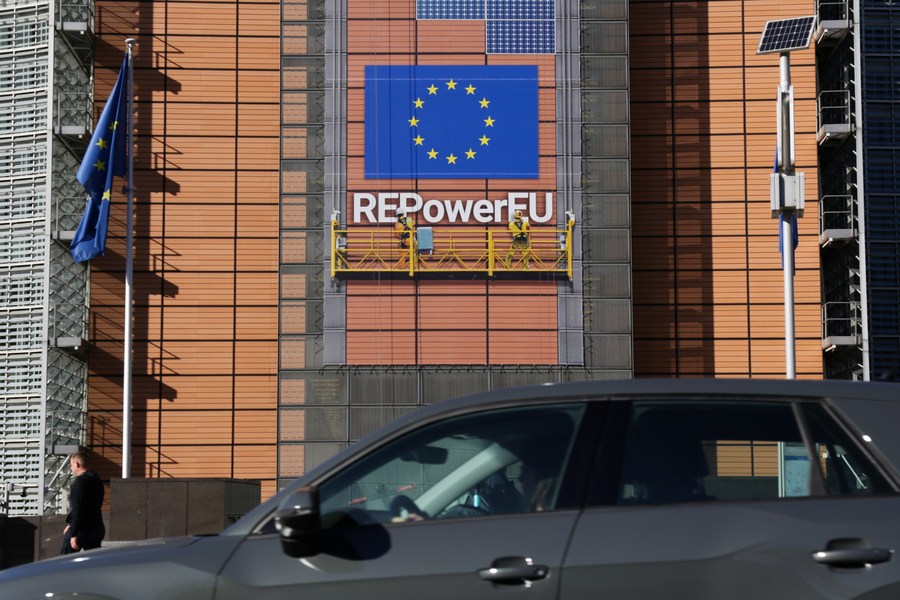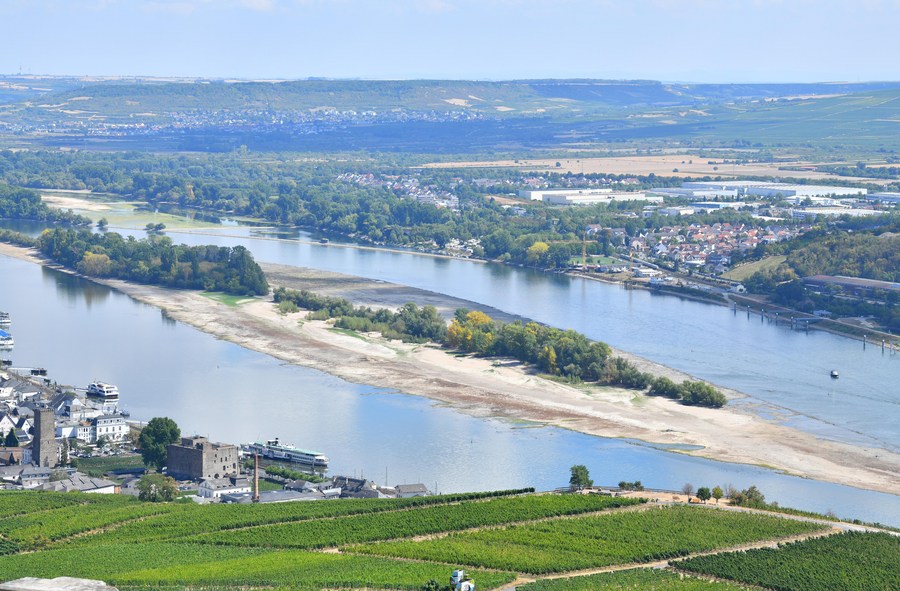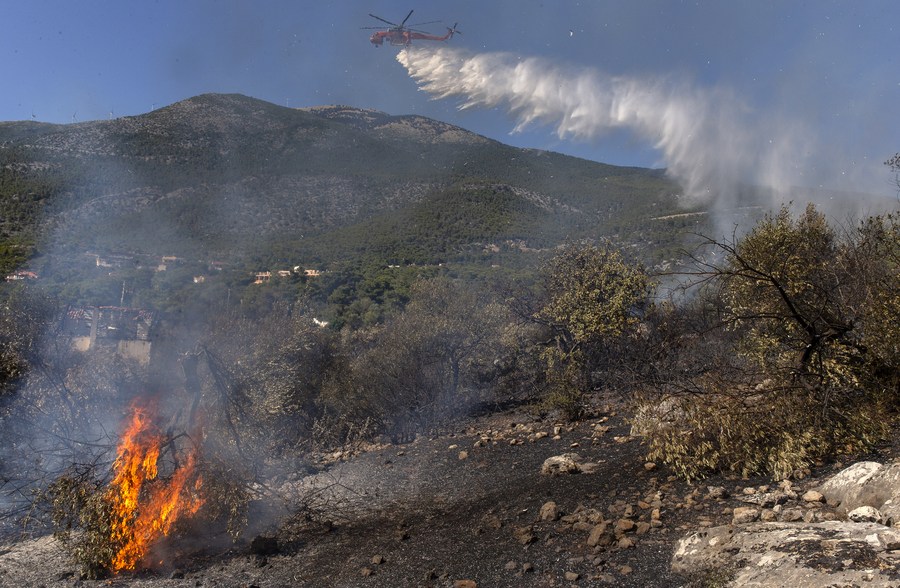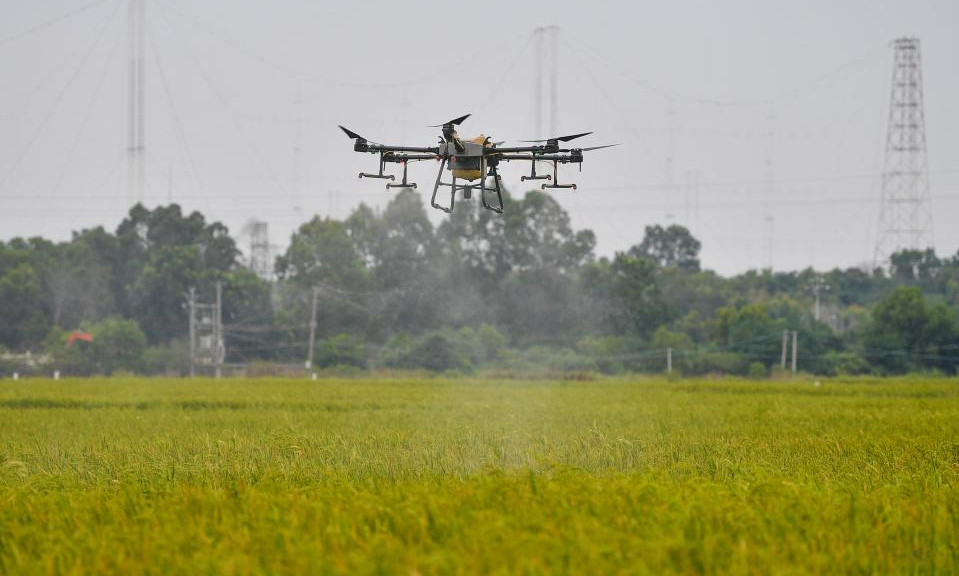EU to tighten air, water pollution rules

A vehicle passes the building of the European Commission in Brussels, Belgium, Oct. 18, 2022. (Xinhua/Zheng Huansong)
"The annual limit value for fine particulate matter (PM2.5) will be reduced by more than half in 2030, from 25 micrograms per cubic meter to 10 micrograms per cubic meter in 2030," according to the proposal.
BRUSSELS, Oct. 26 (Xinhua) -- The European Commission on Wednesday adopted three proposals aimed at improving air, water and wastewater quality in the European Union (EU).
According to the proposal, the EU member states should set interim goals for reducing air pollution by 2030 and achieving zero pollution by 2050.
"The annual limit value for fine particulate matter (PM2.5) will be reduced by more than half in 2030, from 25 micrograms per cubic meter to 10 micrograms per cubic meter in 2030," according to the proposal.
Justice will be better served for those suffering health damage from air pollution, making it easier for them to be compensated and represented.
"Each year, 300,000 Europeans, a city bigger than Venice, die early because of air pollution," Virginijus Sinkevicius, European commissioner for the environment, wrote on social media.
"Clean air is not a luxury, it's a basic right," Sinkevicius said.

Photo taken on Aug. 16, 2022 shows River Rhine in Ruedesheim, Germany. (Xinhua/Ren Pengfei)
Echoing this message, Frans Timmermans, European Commission vice president in charge of the Green Deal, commented that "each year, hundreds of thousands of Europeans die prematurely and many more suffer from heart and lung diseases or pollution-induced cancers."
On fresh water, the Commission aims to revise EU rules to tackle more pollutants, such as pharmaceuticals, microplastics and persistent chemicals, according to Sinkevicius.
More substances will be added to the 53 listed in the current legislation on the protection of fresh water in the EU.
Other tools include the reduction of acutely toxic and persistent chemicals allowed in surface and groundwater; the reduction of pollution at the source; better monitoring data; an early warning system for EU member states to alert downstream countries in case of emergency; and monitoring of microplastics and antimicrobial genes.

Photo taken on July 5, 2022 shows fire in a forest in Porto Germeno, Greece. (Photo by Marios Lolos/Xinhua)
Cleaner fresh water will induce lower healthcare costs, lower water and sludge treatment costs, and healthier ecosystems.
Finally, polluters of urban wastewater will be held accountable and will need to financially participate in their treatment.
"We will cover more pollution sources than ever before: micropollutants, residues from pharmaceuticals and cosmetics. And we will make sure polluters pay their fair share!" Sinkevicius tweeted.
"Currently, the pharmaceuticals and cosmetics sectors are jointly responsible for 92 percent of the toxic load in wastewaters," according to the Commission.
Photos
Related Stories
- EU proposes new measures to combat high energy prices
- EU ministers discuss joint gas purchases, electricity market reform
- Energy tops agenda of Prague EU summit
- EU leaders pledge to further coordinate energy policies at Prague meeting
- EU ministers agree to include energy self-sufficiency in recovery plans
- EU leaders to discuss Ukraine, energy, economy in Prague summit
- EU ministers agree to impose emergency measures to reduce energy prices
Copyright © 2022 People's Daily Online. All Rights Reserved.









